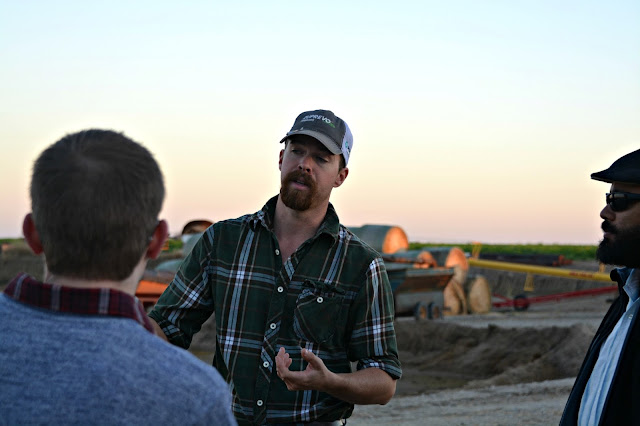
Rural life isn't for everybody. And it's not meant to be. Some people are made for eight lanes of traffic, Trader Joe's and lots of coffee availability.
But some people are made for rural life. Some people are made for gravel roads, the local grocery store with four aisles and a fair amount of, well, dust.
Or dirt. Or whatever your road is by the time it's gotten worn down by tractor tires.

In our church denomination, we focus intently on caring for people in rural areas, specifically through Rural & Small Town Mission.
Urban and inner city work is needed and valued, and we spend a lot of time there as well, but we also believe that caring for those on the prairies of the Dakotas or the back roads of Indiana is just as important.
Urban and inner city work is needed and valued, and we spend a lot of time there as well, but we also believe that caring for those on the prairies of the Dakotas or the back roads of Indiana is just as important.

That's how five future pastors from Concordia Theological Seminary, Fort Wayne, wound up spending several days in rural Missouri, meeting with teachers and bankers, funeral home owners and farmers as part of a Rural & Small Town immersion project.
Together they discovered what it's like to live and work in rural areas, an exercise that will prepare them--heartily--if they receive a call to small-town Iowa or the hinterlands of Alaska.
Because as I learned from a recent Rural & Small Town conference I attended, Alaska is rural too.
See? Even rural people need to learn about rural-ity.
Rural-ness.
Rural-ocity.
Because as I learned from a recent Rural & Small Town conference I attended, Alaska is rural too.
See? Even rural people need to learn about rural-ity.
Rural-ness.
Rural-ocity.

These guys toured our dairy, getting up close and personal with cows and manure and tractors and milking.
And cute farmers with massive goatees who are caught mid-blink.

And then they came to our home for a Fort Wayne style "gemulichkeit" of beer and pretzels before we sat down to break corn bread over chili.
I'm a graduate of Concordia Theological Seminary, and I couldn't have been prouder to see these men taking time away from their studies and families to learn about what makes small towns and rural settings different.
It also didn't hurt to see one of their professors counsel and guide them, rebuke them and teach them, make them laugh and teach them every step of the way. There are teachers, and then, well, there are TEACHERS.

Rural and small-town areas have their challenges, to be sure: skipping church during busy seasons of the year, drug use, poverty, fear of upsetting people you've known for generations, cliques and generations of bad but ingrained habits.
But they have many blessings too: long held morals and values, humor and joy, an appreciation for simple things and the occasional side of beef or deer or box of peaches that gets left on the pastor's doorstep.

The good and the bad, rural and small town: They're precisely why good pastors are needed among them . . . and why we're happy to show off our cows and heat up the soup any old time.
And cute farmers with massive goatees who are caught mid-blink.

And then they came to our home for a Fort Wayne style "gemulichkeit" of beer and pretzels before we sat down to break corn bread over chili.
I'm a graduate of Concordia Theological Seminary, and I couldn't have been prouder to see these men taking time away from their studies and families to learn about what makes small towns and rural settings different.
It also didn't hurt to see one of their professors counsel and guide them, rebuke them and teach them, make them laugh and teach them every step of the way. There are teachers, and then, well, there are TEACHERS.

Rural and small-town areas have their challenges, to be sure: skipping church during busy seasons of the year, drug use, poverty, fear of upsetting people you've known for generations, cliques and generations of bad but ingrained habits.
But they have many blessings too: long held morals and values, humor and joy, an appreciation for simple things and the occasional side of beef or deer or box of peaches that gets left on the pastor's doorstep.

The good and the bad, rural and small town: They're precisely why good pastors are needed among them . . . and why we're happy to show off our cows and heat up the soup any old time.







No comments:
Post a Comment